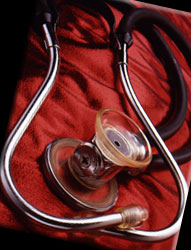

1. What is a Legal Nurse Consultant?
The American Association of Legal Nurse Consultants has defined legal nurse consulting as “the specialty practice of the profession of nursing in which registered nurses apply their nursing education and clinical expertise to the medically related issues of the litigation process. The primary role of the legal nurse consultant is to evaluate, analyze, and render informed opinions about the delivery of healthcare and the resulting outcomes.”
Magnusson, J. (2003). The history and evolution of legal nurse consulting.
In P. Iyer (Eds.), Legal nurse consulting principles and practice (2nd ed.). (pp. 162).
Boca Raton: CRC Press.
2. What makes a nurse qualified to assist an attorney?
The experience that a nurse possesses is a valuable tool for the attorney. Nurses have the insight and awareness to help the attorney successfully win cases. She/he critiques patient care on a daily basis, not only nursing care, but medical practice and practice of ancillary disciplines. Nurses are the experts on the real world of patient care and the inner workings of a health care facility. They have the ability to filter out the irrelevant issues, focusing on the applicable aspects of the case, which will save the attorney time.
Through a nurse’s experience, the attorney will acquire firsthand knowledge on the Joint Commission on Accreditation of Health Care Organizations (JCAHO) Standards, Commission on Accreditation of Rehabilitation Facilities (CARF) and other accreditation organizations, healthcare policies and procedures, staffing delegation, and managed care organizations. In addition, the nurse has access to expert witnesses through their colleagues, as well as access to standards of care and authoritative resources.
3. Why should I use a legal nurse consultant when I can use a paralegal?
A LNC focuses on the nursing and medical issues of a case and a paralegal concentrates on the legal aspects of a case, which may prohibit an in-depth analysis of the medical issues. By using a LNC in conjunction with a paralegal, it allows each role to focus on their area of expertise and experience, the medical and legal issues of a case.
If an attorney uses a nurse paralegal, he will also benefit from a LNC in that the responsibility of the nurse paralegal wearing the two hats, medical and legal, of a case will be redirected where the LNC can focus on the medical and nursing issues, as well as collaborate with the nurse paralegal in a team fashion.
4. Why should I use a legal nurse consultant when I can use a MD to review my cases?
Doctors (MD) will charge attorneys large consulting fees to review medical cases. A LNC is able to provide multiple services to assist the attorney at a relative lower cost. Does your MD assist you with analyzing the nursing issues in the case? Does your MD know where to look for nursing standards of care and authoritative texts? Does your MD write in-depth reports and visual chronologies in easy to understand language?
A LNC is more qualified to review nursing standards of care and facility policies and procedures than a doctor due to the nurse’s profession of nursing in the health care system. Nurses are also able to assist in locating doctors for expert witness testimony. By using both a MD and a LNC will give the attorney the best result and the competitive edge to win the case.
